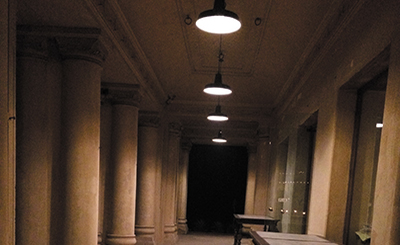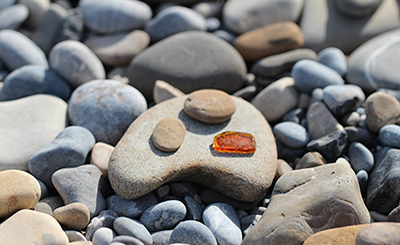
Four poems by Irish poet Eleanor Hooker as part of our newly introduced section Parnassus: Poetry, curated by our contributing editor Siddhartha Gigoo
A Poet Steals my Grandfather’s Skull
I open my eyes to find myself
returned. But for the mildewed moon,
the forest is concealed beneath a callous sky.
I discover what remains of him in a clearing.
She has exhumed him and taken his skull.
My Grandfather’s ribs lie on the earth,
a latticework of hoops and stringers —
the bones of a Currach once covered in animal hide,
cured in oak-bark and tar — a hull that ferried him
through eighty years and now laid bare.
She uses clay to reconstruct his face
in her family’s likeness, making him her lie —
his aquamarine eyes no longer carry the sea,
his smile no longer his. She whispers her alibi
into his left ear and a swarm of flies emerges from the other.
I long to steal him back, return him to his grave
but the trees say, first unearth the self she has buried.
They say, follow silence with silence, name all terrors hers.
Nearby,I find a woman naked and expectant, tethered
to a sudden storm. I lie down beside her, my doppelgänger.
We are dragged along the forest floor for years.
When the storm ceases only I remain; a woman made
of words is easily erased, but not before she is read raw.
I carry my dead baby to the clearing.
She’s there still, there are other graves to rob —
my Grandfather long abandoned for her latest incarnation.
When she attempts to take my baby, I become a lioness —
she will not put a new face on my child.
Whenever she opens her mouth, words that escape
are familiar phrases, all our murdered darlings.
When you Dream of the Dead
They always wear perfect versions
of their younger selves.
My grandparents call out, oh, here she is at last.
The table is set for a banquet — this is not a wake.
Dad is by the hearth, encouraging ash back to life.
I’ve never lived in a house that held its heat
I tell him, unable to say I miss you
in case he recollects his death.
He’s distracted, can you hear that?
he asks. Somewhere in the house
a child is crying. Find her, ’he says.
Take her with you when it’s time.
When the door opens, he looks expectant.
I see a shadow of the presence that’s followed me here,
that follows me everywhere. Somewhere a requiem plays
and everyone in the room plays dead.
I will not look.
~
The sea is the colour of the sea
I choose — aquamarine and teal.
My boat runs in on a flood tide,
is beached at the prairie’s edge,
the closest I’ll get to home.
Here grasslands smell of ochre
and ash, of scorched heartlands.
The sun sweats yellow in a blue, blue sky.
I make my way to the house —
a prank house cobbled together
with every house I’ve ever called home.
The door is an ancient wood,
each tree a memory, each leaf a hook.
The walls are lined with conch-shells,
through which the wind blows
my lonely childhood song.
In the hall I hear crying —
so close, it could be coming from me.
I climb the stairs, stop outside the Room of Rain.
Rust flowers the lock. I hear rain falling inside
but I won’t go in; this is where the light died —
hung from a bouquet of stars.
Delivery
From the fear of being forgotten, deliver me.
That I may have courage, grant me the grace to desire it.
A young woman lies on the trolley,
feet strapped in lithotomy position.
I smile at her. Her eyes are two locked green doors —
she has shut herself out and is standing behind me.
An angel-scavenger lies at her breast, suckles

on our history of silence, we have taught it to do this,
and whenever we wind it, it spits up catechism.
Drapes are assembled.
Master and Matron decide this woman,

raped into motherhood, shall not know her child.
A boy. He is swaddled and taken away.
And the room is filled with pounding
against two locked green doors.
Later, she stands on tip-toe,
attempts to see
through the frosted glass of the nursery.

* For the women who were incarcerated in Irish Magdalene Laundries
An Absence of Life
We sleep in jam jars
on the top shelf in the scullery.
There are a lot of us,
and besides, it’s the warmest room.
I squint through glass
at Grandpa’s rainbow head,
but not at Granny’s prunes,
that sit like slugs laughing
on the yellow saucer on the sill.
They keep me regular, she says,
like clockwork. But I know that —
she owns one big, one small hand.
Her teeth have their own jar.
I like her tiny teeth —
at night they tell forest tales
in black and white, and during the day
speak from her mouth in colour.
Each morning I stand on the back of the red chair
to reach my jar, to let myself out. Sometimes I laugh,
that way they won’t notice my second shadow,
have one less thing to worry about.
More from The Byword
Comments
*Comments will be moderated











THUMB.jpg)